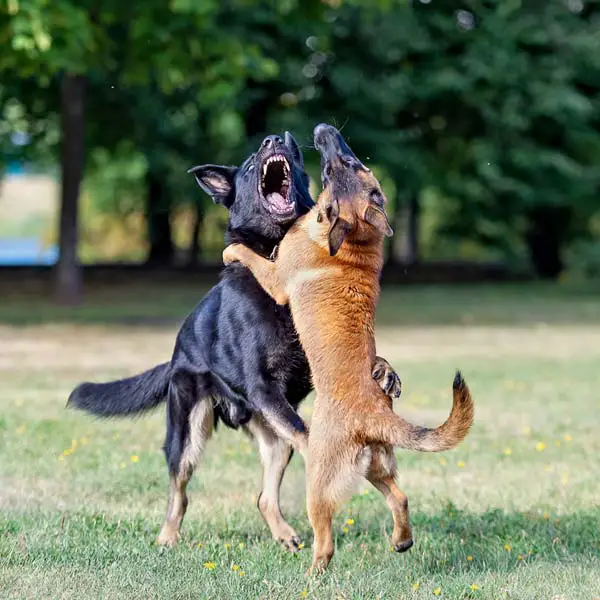Dog aggression can be a challenging and sometimes frightening issue for pet owners to handle. It can be caused by a variety of factors, including fear, territoriality, and lack of socialization. However, it’s essential to remember that aggressive behavior can be managed and treated with patience, consistency, and training. In this article, we’ll discuss some effective tips and techniques for dealing with dog aggression.

1. Understanding the causes of aggression
The first step in dealing with dog aggression is to understand the root cause of the behavior. Aggression can be caused by fear, anxiety, territorial behavior, or lack of socialization. Identifying the cause of aggression can help in developing an effective management plan.
2. Training and socialization
Training and socialization are crucial for preventing and managing aggressive behavior. Socializing your dog with other pets and people can help your dog become more comfortable in different situations. Additionally, obedience training can help reinforce desirable behaviors and discourage unwanted behaviors.

3. Avoiding triggers
Avoiding situations that trigger aggression is an effective way of managing aggressive behavior. If your dog becomes aggressive around certain people or in specific situations, it’s best to avoid those situations altogether. By doing so, you can prevent your dog from becoming stressed or anxious and reduce the likelihood of aggressive behavior.
4. Positive reinforcement
Positive reinforcement techniques can help in managing aggressive behavior. Rewarding your dog for good behavior with treats, toys, or verbal praise can encourage your dog to repeat those behaviors. Positive reinforcement can also help build a positive relationship between you and your dog.
5. Seeking professional help
In some cases, aggressive behavior in dogs can be challenging to manage, and professional help may be necessary. A professional dog trainer or behaviorist can help identify the cause of aggression and develop an effective treatment plan. They can also provide additional resources and support to manage and prevent aggressive behavior.

In conclusion, managing dog aggression can be a challenging and sometimes time-consuming process. However, with patience, consistency, and training, aggressive behavior can be managed and treated. Understanding the root cause of aggression, training and socialization, avoiding triggers, positive reinforcement, and seeking professional help are effective techniques for managing dog aggression. By following these tips, you can help your furry friend become a happier and more well-behaved companion.